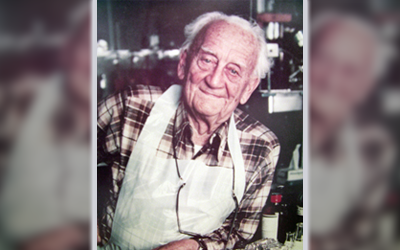
Basic research has various names, including “discovery research” or “blue sky research.” It is the investigation of the “how’s and why’s” of cancer’s complex nature.
One of the major obstacles to breakthroughs in cancer research is that grant-providing programs too often constrain recipients’ scope of exploration, restraining their pursuit of knowledge. But the National Foundation for Cancer Research rejects the status quo.
We are guided by the words of NFCR’s co-founder and Nobel Laureate, Dr. Albert Szent-Györgyi:

“Research is seeing what everyone else has seen but thinking what no one else has thought.”
NFCR specializes in offering flexible funding that allows researchers to explore ideas about the fundamental nature of cancer that may be outside the mainstream. Our support enables cancer scientists and research-physicians to explore highly original hypotheses, pivot when preliminary findings differ from expectations, and adapt as knowledge is acquired.
The transformative results of NFCR’s trademark willingness to allow its researchers to take risks can be seen, for example, in the case of our decades-long support to Dr. Daniel Von Hoff, whose first peer-reviewed grant was from our organization and who traces this individual milestone to the regulatory approval of the first successful pancreatic cancer drug.

“My NIH Grants kept getting turned down – I did not have any way to generate preliminary information and someone from NFCR walked into my office and said that after careful review that I had been selected as a young investigator that they wanted to support. I think NFCR can be pretty proud because from that came drugs like mitoxantrone the first drug to improve survival for prostate cancer; gemcitabine – the first drug to improve survival for patients with pancreas cancer…”










